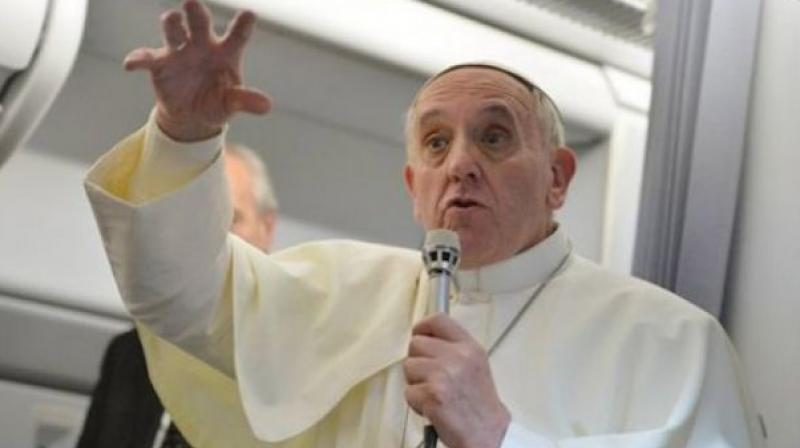Pope Francis shuts holy door at Saint Peter's after packed 12 months
He will close the panelled bronze doors at the Vatican's basilica, which will later be walled up from the inside as per tradition.

Vatican City: Pope Francis will bring to a close his "Year of Mercy" on Sunday, shutting the Holy Door at Saint Peter's after a packed 12 months that has seen him raise Mother Teresa to sainthood and reinstate Syrian refugees.
The Argentine, who has modelled himself on Saint Francis of Assisi, spent the year with the downtrodden, holding special masses and passing one Friday every month with refugees, victims of sex trafficking, the sick, the elderly, and vulnerable children.
He will close the panelled bronze doors at the Vatican's basilica, which will later be walled up from the inside as per tradition.
The "extraordinary Jubilee", only the third since the tradition began 700 years ago, kicked off amid security concerns, with fears of possible jihadist attacks. Police with submachine guns stood guard next to Swiss guards around the tiny state.
In defiance, not one but two men in white attended the opening ceremony: Francis welcoming his predecessor Benedict XVI in a move that marked the first time a current and former Pope launched a jubilee year together.
The watchword, 'mercy', meant helping the unfortunate and welcoming back into the fold sinners and outcasts -- an attitude of compassion the Pope hoped would not only counter xenophobia but also bump up the numbers in church pews.
Francis ruled that during the jubilee every priest in the world would be able to absolve the sin of abortion, and handpicked over 1,000 "missionaries of mercy" dubbed "super confessors".
They were able to forgive sins usually only pardonable by the Pontiff, from attempting to kill the holy father to defiling the Eucharist -- the rite of consuming consecrated bread and wine in Church -- by spitting it out or using it in a Satanic ritual.
The 79-year old also decreed so-called "Holy Doors" should be opened across the world for the first time, so that people everywhere could pass through them and have their sin slate wiped clean as long as they were truly repentant.
He eschewed tradition to open the first one himself not at Saint Peter's but in the cathedral of Bangui in the Central African Republic, in a sign of the importance of dioceses far from Rome.
In a crowd-pleasing move, Francis had the remains of Saint Padre Pio -- a favourite among those looking for compassion and healing -- brought to Rome and carried through the streets to the Vatican.
Thousands turned out to glimpse the body of a man reputed by believers to have been able to levitate, read minds and bi-locate, appearing in foreign lands while remaining at the same time in his friary.
Over 100,000 pilgrims, including Queen Sofia of Spain and 1,500 homeless people, flocked to the Vatican in September for the canonisation of Mother Teresa, who Pope Francis held up as an icon who challenged the powerful and defended the poor.
But the Pope ensured the majority of the jubilee events centered on those who were outcast or abandoned, holding special masses for the disabled, poor, homeless and prisoners -- including some serving life sentences.
He opened a free medical clinic for the homeless next to Saint Peter's Square.
Unafraid of angering traditionalists, Pope Francis said protecting the environment should be added to the seven corporal works of mercy drawn from the Gospels, such as feeding the hungry and visiting the sick.
And in perhaps the highlight of the year, he ended a one-day trip to the Greek island of Lesbos -- Europe's migration hot-spot at the time -- by taking three Syrian refugee families, all Muslim, back to Rome with him.

